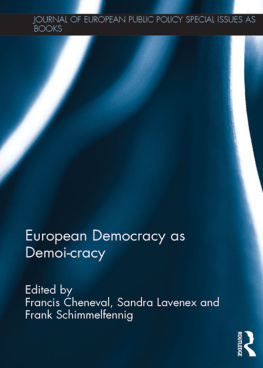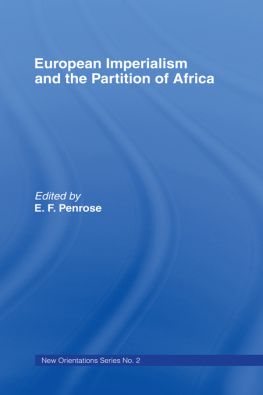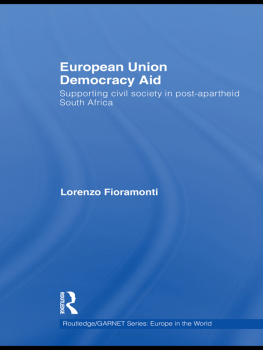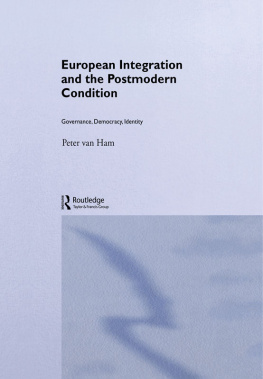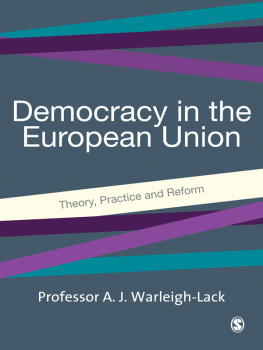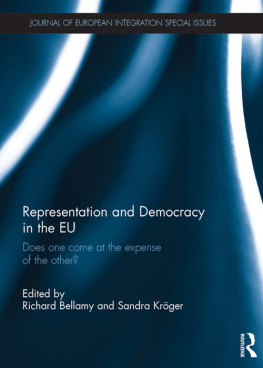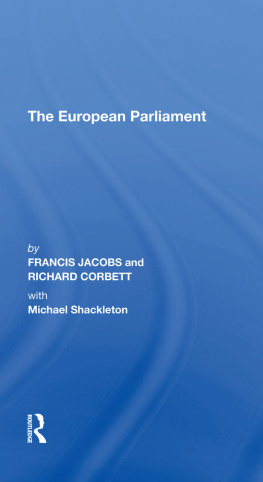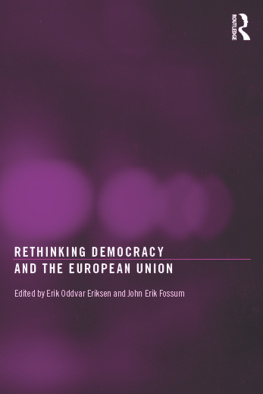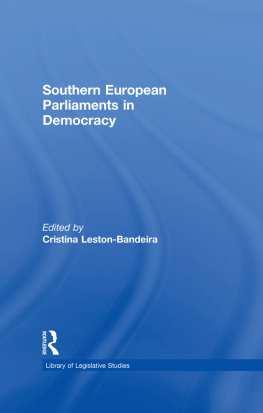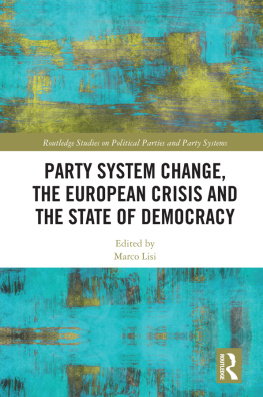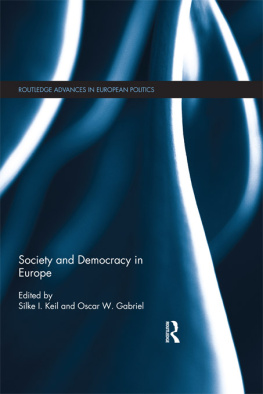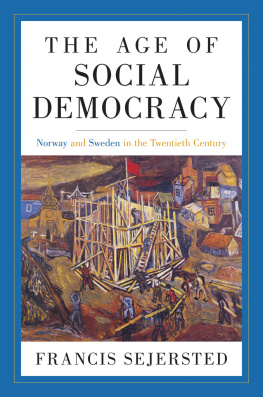European Democracy as Demoi-cracy
Whereas democracy assumes a single demos or people, demoi-cracy refers to democratic government and governance in a polity constituted by separate peoples. Since the European Union consists of many demoi with different collective identities, largely separate public spheres, and a predominantly national political infrastructure, demoi-cracy is an appropriate standard for the analysis and evaluation of democracy in the EU. In its vertical dimension, demoi-cracy is based on the equality and interaction of citizens and statespeoples representatives in the making of common policies. Horizontally, it seeks to balance equal transnational rights of citizens with national policy-making autonomy.
This volume offers exemplary studies exploring the potential for and the workings of demoi-cracy in the EU across a broad range of institutions and issues in both its vertical and horizontal dimensions. In particular, the contributions address the following questions: Is demoi-cracy relevant to citizen attitudes and public discourse on the EUs legitimacy? How do national and supranational democratic institutions interact? Do the EUs modes of governance, such as regulation through agencies, mutual recognition, and the open method of coordination, meet demoi-cratic expectations?
This book was originally published as a special issue of the Journal of European Public Policy.
Francis Cheneval is Professor of Political Philosophy at the University of Zurich, Switzerland.
Sandra Lavenex is Professor of European and International Politics at the University of Geneva, Switzerland.
Frank Schimmelfennig is Professor of European Politics at ETH Zurich, Switzerland.
Journal of European Public Policy Series
Series Editor: Jeremy Richardson is Emeritus Fellow at Nuffield College, Oxford University, UK, and an Adjunct Professor in the National Centre for Research on Europe, University of Canterbury, New Zealand.
This series seeks to bring together some of the finest edited works on European Public Policy. Reprinting from Special Issues of the Journal of European Public Policy, the focus is on using a wide range of social sciences approaches, both qualitative and quantitative, to gain a comprehensive and definitive understanding of Public Policy in Europe.
Towards a Federal Europe
Edited by Alexander H. Trechsel
The Disparity of European Integration
Edited by Tanja A. Brzel
Cross-National Policy Convergence: Causes Concepts and Empirical Findings
Edited by Christoph Knill
Civilian or Military Power?
European Foreign Policy in Perspective
Edited by Helene Sjursen
The European Union and New Trade Politics
Edited by John Peterson and Alasdair R. Young
Comparative Studies of Policy Agendas
Edited by Frank R. Baumgartner, Christoffer Green-Pedersen and Bryan D. Jones
The Constitutionalization of the European Union
Edited by Berthold Rittberger and Frank Schimmelfenig
Empirical and Theoretical Studies in EU Lobbying
Edited by David Coen
Mutual Recognition as a New Mode of Governance
Edited by Susanne K. Schmidt
France and the European Union
Edited by Emiliano Grossman
Immigration and Integration Policy in Europe
Edited by Tim Bale
Reforming the European Commission
Edited by Michael W. Bauer
International Influence Beyond Conditionality
Postcommunist Europe after EU enlargement
Edited by Rachel A. Epstein and Ulrich Sedelmeier
The Role of Political Parties in the European Union
Edited by Bjrn Lindberg, Anne Rasmussen and Andreas Warntjen
EU External Governance
Projecting EU Rules beyond Membership
Edited by Sandra Lavenex and Frank Schimmelfennig
EMU and Political Science
What Have We Learned?
Edited by Henrik Enderlein and Amy Verdun
Learning and Governance in the EU Policy Making Process
Edited by Anthony R. Zito
Political Representation and EU Governance
Edited by Peter Mair and Jacques Thomassen
Europe and the Management of Globalization
Edited by Wade Jacoby and Sophie Meunier
Negotiation Theory and the EU The State of the Art
Edited by Andreas Dr, Gemma Mateo and Daniel C. Thomas
The Political Economy of Europes Incomplete Single Market
Edited by David Howarth and Tal Sadeh
The European Unions Foreign Economic Policies
A Principal-Agent Perspective
Edited by Andreas Dr and Michael Elsig
The Politics of the Lisbon Agenda Governance Architectures and Domestic Usages of Europe
Edited by Susana Borrs and Claudio M. Radaelli
Agency Governance in the European Union
Edited by Berthold Rittberger and Arndt Wonka
The EU Timescape
Edited by Klaus H. Goetz and Jan-Hinrik Meyer-Sahling
The EUs Common Foreign and Security Policy
Edited by Helene Sjursen
Economic Patriotism in Open Economies
Edited by Ben Clift and Cornelia Woll
The Power of the European Court of Justice
Edited by Susanne K. Schmidt and R. Daniel Kelemen
The Representative Turn in EU Studies
Edited by Sandra Krger and Dawid Friedrich
Legislative Co-decision in the European Union
Edited by Anne Rasmussen, Charlotte Burns and Christine Reh
Frameworks of the European Unions Policy Process
Edited by Nikolaos Zahariadis
Changing Models of Capitalism in Europe and the U.S.
Edited by Richard Deeg and Gregory Jackson
Europes Place in Global Financial Governance after the Crisis
Edited by Daniel Mgge
The European Union: Integration and Enlargement
Edited by R. Daniel Kelemen, Anand Menon and Jonathan Slapin
Coping with Power Dispersion?
Autonomy, Co-ordination and Control in Multi-Level Systems
Edited by Mads Dagnis Jensen, Christel Koop and Michal Tatham
Democracy or Demoi-cracy in the European Union
Edited by Francis Cheneval, Sandra Lavenex and Frank Schimmelfennig
Speaking with a Single Voice
The EU as an Effective Actor in Global Governance?
Edited by Eugnia da Conceio-Heldt and Sophie Meunier


